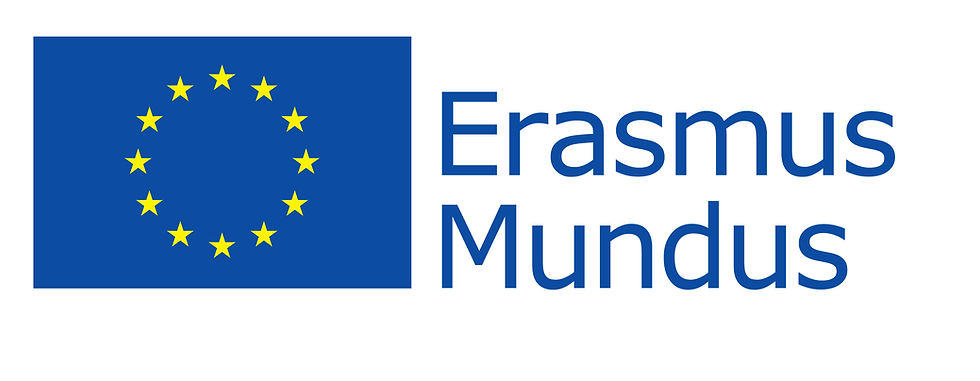Erasmus Mundus
- Apr 28, 2017
- 3 min read

The European Union's Erasmus Mundus programme aims to enhance quality in higher education through scholarships and academic co-operation between the EU and the rest of the world.
Erasmus Mundus comprises three actions:
Joint programmes
Partnerships
Attractiveness projects
Joint Programmes
Under Action 1, Erasmus Mundus supports Joint Programmes (Masters Courses and Joint Doctorates) that are operated by consortia of higher education institutions from the EU and (since 2009) elsewhere in the world. They provide an integrated course and joint or multiple diplomas following study or research at two or more higher education institutions.
Erasmus Mundus funds a number of scholarships for students and academics studying or teaching on Erasmus Mundus Masters Courses. Since 2010, fellowships have also been available for doctoral candidates following one of the Joint doctorates.
Scholarships cover participation costs, subsistence costs, and insurance for the duration of the study period. Many students also have the right to a contribution to travel costs.
Partnerships
Under Action 2, Erasmus Mundus Partnerships bring together higher education institutions from Europe and from a particular region in the world. Together, the partnerships manage mobility flows between the two regions for a range of academic levels—undergraduate, masters, doctorate, post-doctorate—and for academic staff.
Scholarships cover participation costs, subsistence costs, insurance for the duration of the study period, plus a contribution to travel costs.
Attractiveness Projects
Under Action 3, Erasmus Mundus funds projects to enhance the attractiveness and visibility of European higher education worldwide. Activities focus on the international dimension of higher education, often targeting a particular region or academic discipline.
What do you need for participation in the Erasmus Mundus programme:
- to treat one of the target groups in accordance with the tab (for Russia, like example) on the link;
- choose a training program at the University of the EU. To do this, go to the official website of the project tab of the Partner Universities and then at the Partner Universities in the EU. Attention! It is important that your chosen program is correlated with your previous education.;
- good knowledge of host country language or the language in which the courses will take place; - applicants from Russia must not live, study or work last 12 months in any of the European countries-participants of the program at the time of filing for a grant; - the Erasmus Mundus can only be obtained once in a lifetime; - once you decide on the program which you wish to study must contact the International office nearest to you partner University in Russia, where you will advise on further steps;
- shipment of your documents on the program will deal with your supervisor from the International Department of the partner University. He can help you with translation of your documents into English. All documents are translated into English.
What documents need to be send to host University in the EU:
- academic transcript from your University (if you have not received a diploma), or a diploma; - 2 letters of recommendation (one from Dean of your faculty, the other from one of your teachers); - motivation letter; - completed applications with a photograph.
Stages of participation in the program:
- the documents can be submitted via the curator; - interview in English (or the language in which the courses will take place); - the finding of the supervisor in the host University in the EU; - confirmation about your participation and scholarships from the host University in the EU.
And in the end, I would like to show you the video about Erasmus Mundus programmes experiences of people from different countries:
You can find the list of Erasmus Mundus programms on the link: https://gradstudyabroad.ru/erasmus-mundus/erasmus-mundus-program-list
You can find more information on the link: https://en.wikipedia.org/wiki/Erasmus_Mundus








Comments